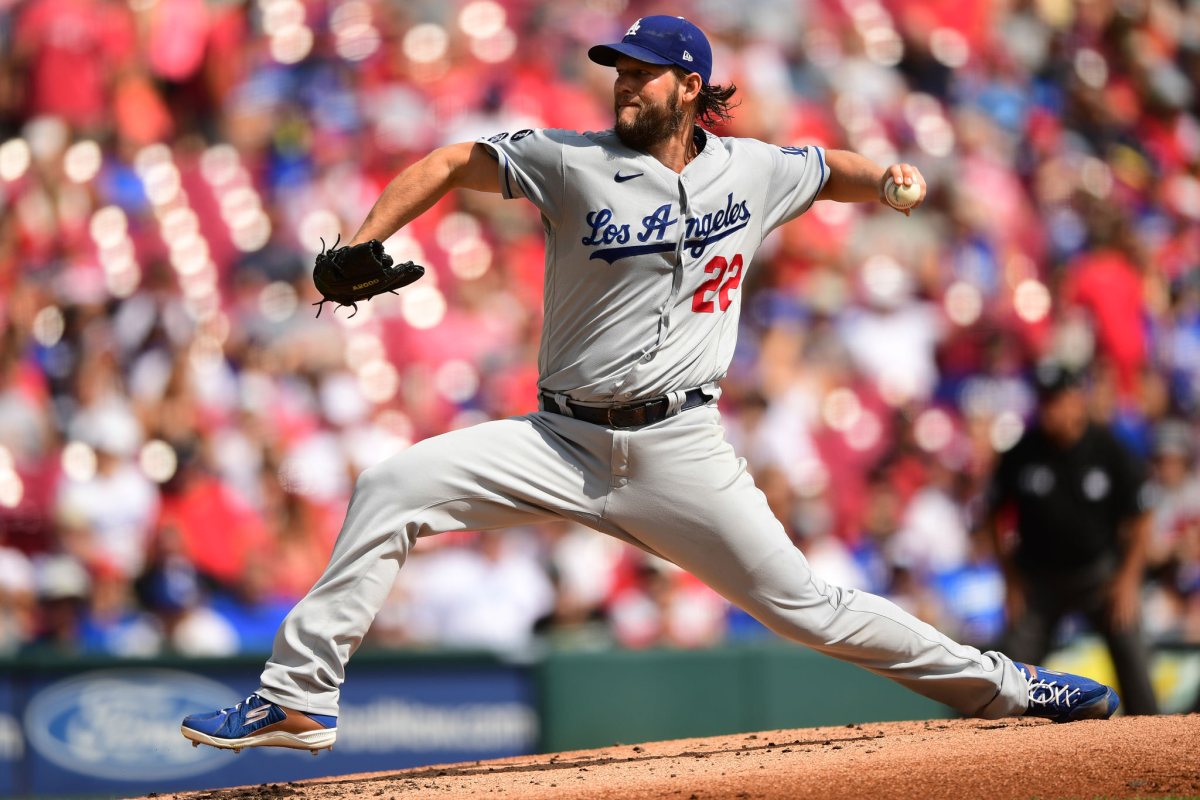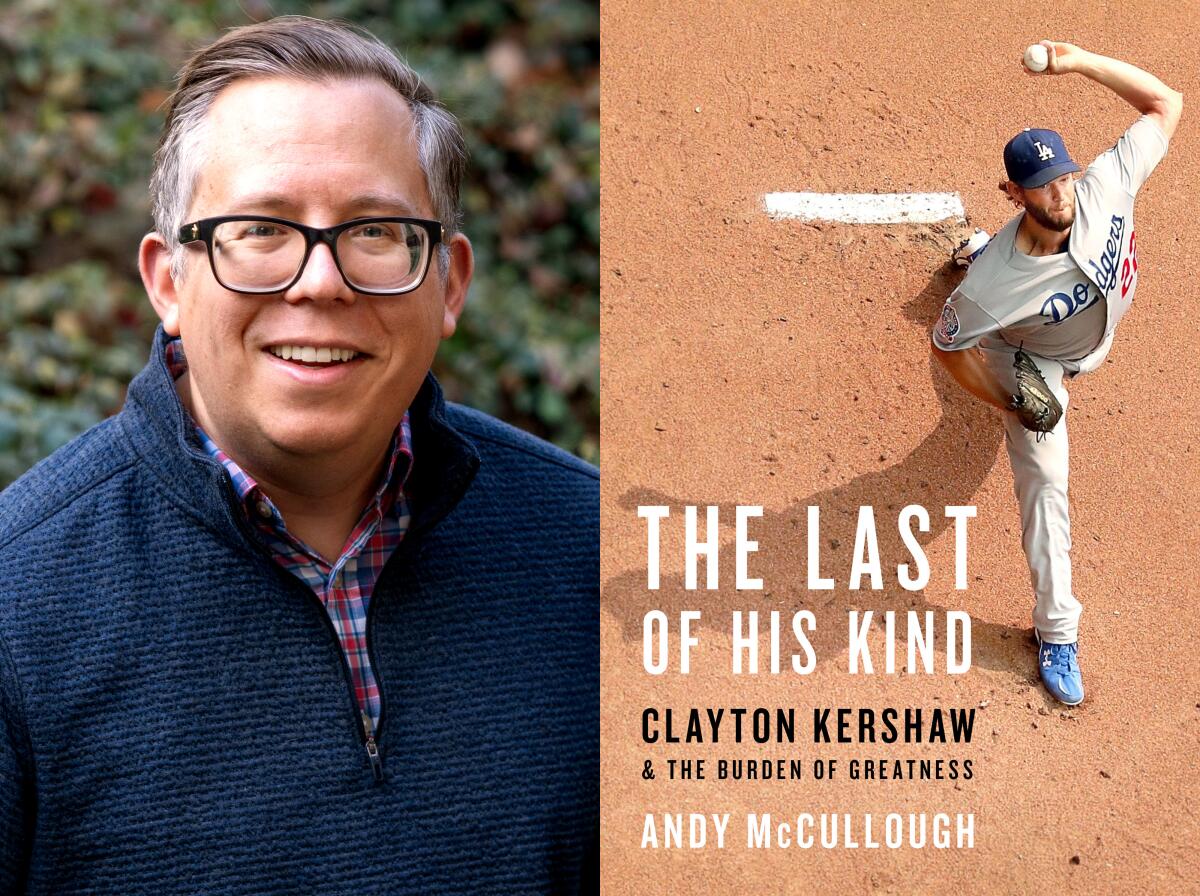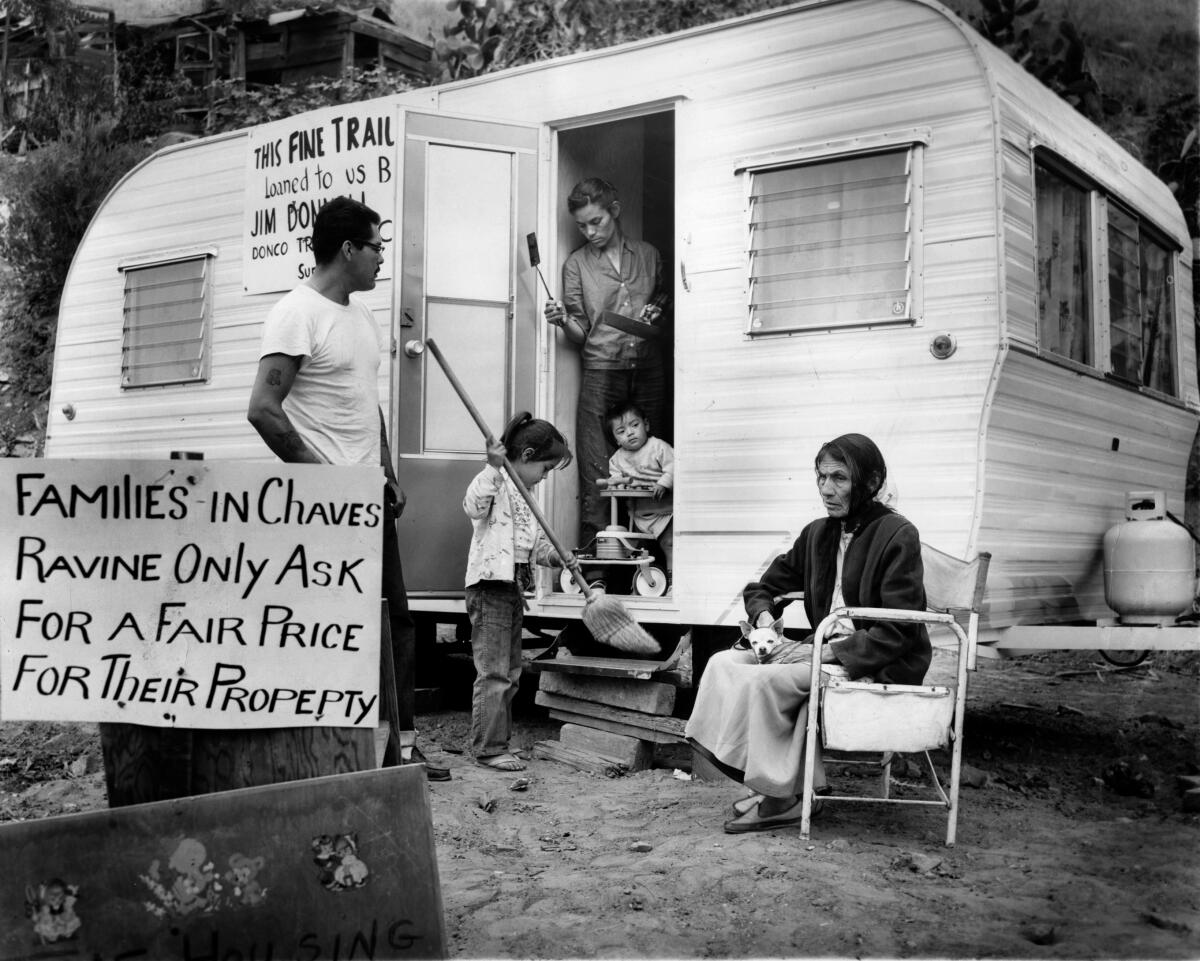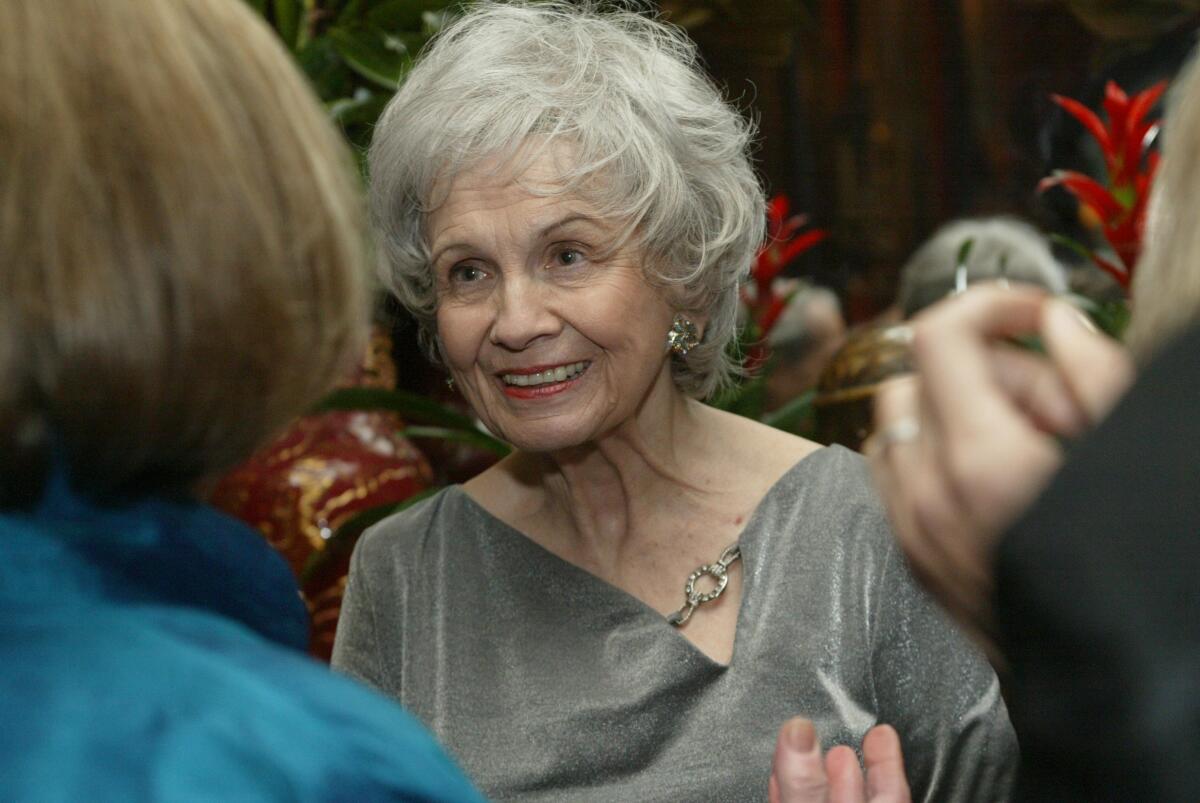There’s no crying in baseball, but there are plenty of great baseball books

A new biography of Clayton Kershaw, a history of Chavez Ravine, a reevaluation of a Negro League star and more book recommendations for baseball fans.
- Share via
Good morning and welcome to the L.A. Times Book Club newsletter.
I’m novelist and punk historian Jim Ruland, and this week we’re celebrating America’s pastime. We’re currently midway through the MLB season and the Dodgers are sending six players to next week’s All-Star Game — tied for most in all of baseball.
The Dodgers are currently in first place in the National League West and on pace to win the division title for the 11th time in 12 years. But as faithful fans know all too well, with the exception of the pandemic-shortened season when the Dodgers won it all, the postseason has typically been a house of horrors. Just look at the 2017 scandal-marred defeat by the Houston Astros, the 2019 collapse against the Washington Nationals, or the early first-round exits in 2022 and 2023 at the hands of division rivals San Diego Padres and Arizona Diamondbacks.
No one has taken the blame or felt the brunt of those losses more than star pitcher Clayton Kershaw. Despite his once-in-a-generation talent and Hall of Fame-worthy career, he has become synonymous with October failure and postseason meltdowns on the pitching mound.
This offseason, the Dodgers added Shohei Ohtani, Yoshinobu Yamamoto, Tyler Glasnow and Teoscar Hernández to a team filled with heavy hitting All-Stars like Mookie Betts, Freddie Freeman and Will Smith. So while there’s reason to be hopeful this postseason, fans could be bracing for another disappointing October, as several key players are either injured or recovering.
To get a better sense of the Dodgers’ postseason outlook, I reached out to author Andy McCullough, a senior writer at the Athletic and former Dodgers beat writer for the L.A. Times. His outstanding new biography, “The Last of His Kind: Clayton Kershaw and the Burden of Greatness,” is essential reading for Dodgers fans.

How did you find the time to write this book while working full time?
I have a cat, and so the cat wakes me up most days, somewhere between 3 and 4 in the morning. I would wake up, have some coffee, eat breakfast and then I would work on the book. I would work until about 8 or so, and then start my actual job at the Athletic. So my advice to first-time authors is to get a cat.
You quote a line from “Moneyball”: Adapt or die. Some players come into the league having to change their approach virtually every season, but Kershaw resisted any kind of change for much of his career. Do you think that held him back?
To succeed in the majors, you have to be willing to change without losing sight of yourself, and I think that that’s something Kershaw, for a very long time, had a real iron grip on because what he did made him so successful. He was very resistant to change, especially in his younger days during the period from 2011 to 2015 or 2016. But look at the results during that time period. He was the best pitcher on the planet by orders of magnitude.
Kershaw’s stubbornness, competitiveness and drive are some of the same things that make him vulnerable in October, but these attributes are what allow him to bounce back from those huge disappointments. It’s a real catch-22.
I don’t know if it’s symmetrical enough to call it a paradox, but there’s certainly a double-edged sword there. I think that’s part of the challenge of managing a player like that. How do you say, “Hey, chill out” or “Don’t be so intense” when it’s those qualities that make him so special?
You’re reading Book Club
An exclusive look at what we’re reading, book club events and our latest author interviews.
You may occasionally receive promotional content from the Los Angeles Times.
While writing this book, was there anything that surprised you?
Looking at some of [Kershaw’s] starts in 2013 and 2014, it feels like another lifetime in terms of how bullpens are used and starters are deployed. And so there were a lot of times when I was thinking, “Well, in today’s era pitchers only pitch six innings, and teams don’t send their starters back out for the seventh inning, let alone the eighth.”
Kershaw wouldn’t have been put in those situations if he was starting today?
It was just a different time. He was the rare pitcher who was afforded that opportunity and responsibility. Those seasons felt almost like ancient history, in part, because the game has just evolved so much in the past 10 years.
So the million-dollar question is: What can we expect from Kershaw this fall?
That’s a great question. I think his shoulder is going to dictate it. The setback he had in late June feels like it’s not insignificant. I don’t think it’s ever insignificant when you’re coming off the first surgery of your career. This is not a minor procedure he had during the offseason. Two other much younger pitchers, Brandon Woodruff and Kyle Wright, had [similar injuries] and they’re not pitching in 2024. He’s pushing to get back because he doesn’t want to take a full season off, and so we’ll see. It feels dumb betting against him, given all the injuries he’s come back from in his career, but at the same time, it’s not a small thing.
(Please note: The Times may earn a commission through links to Bookshop.org, whose fees support independent bookstores.)
These baseball books are All-Stars

While writing his Kershaw biography, McCullough used Ian O’Connor’s “The Captain: The Journey of Derek Jeter ” as a model. “Iconic player, iconic market,” McCullough said. “This is the definitive story of this player’s time in the city, and that’s what I wanted to do with Kershaw in Los Angeles.”
In 2020, Nate Rogers talked to Eric Nusbaum regarding his book “Stealing Home: Los Angeles, the Dodgers, and the Lives Caught in Between” about the displacement of the residents of Chavez Ravine to build Dodger Stadium. “Dodger Stadium should not exist,” Nusbaum recalls a high school lecturer saying.
Now that MLB has added stats from the Negro League, you may want to read about one of its biggest stars, Leroy “Satchel” Paige, in “Satchel: The Life and Times of an American Legend” by Larry Ty.
One of my favorite books about baseball is also one of the best books about Los Angeles. “Wrecking Crew: The Really Bad News Griffith Park Pirates” by the late John Albert tells the story of how a group of recovering drug addicts, washed-up rockers and miscellaneous misfits found salvation in baseball.
The Week(s) in Books

This week the literary world was rocked by revelations made my Alice Munro’s daughter, Andrea Skinner, that she was sexually abused by her stepfather, and that her mother knew about it and chose to stay silent. In a commentary for The Times, author Rebecca Makkai writes, “The question, now, is whether Munro’s stories can ever again stand independent of what we now know about their author.”
Writing for The Times’ 1999 Project, Lauren Leblanc looks back at J.M. Coetzee’s novel “Disgrace.” “Rife with unspeakable violence and shocking impasses, every word of the book’s 220 pages is measured and necessary,” writes LeBlanc.
Lorena Oropeza reviews Stanford professor Albert M. Camarillo’s “Compton in My Soul: A Life in Pursuit of Racial Equity” and discovers that “his remarkable academic career as one of the founders and shapers of the field of Chicano history” has its roots in Compton.
Laura van den Berg’s “State of Paradise” tops Bethanne Patrick’s “10 books to add to your reading list in July.”
Thanks again for reading. I’ll be back in two weeks — just in time for Comic-Con 2024!
Sign up for our Book Club newsletter
Get the latest news, events and more from the Los Angeles Times Book Club, and help us get L.A. reading and talking.
You may occasionally receive promotional content from the Los Angeles Times.



